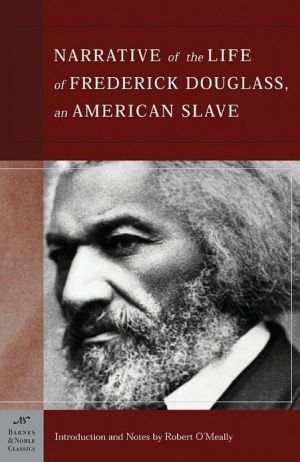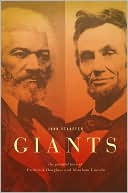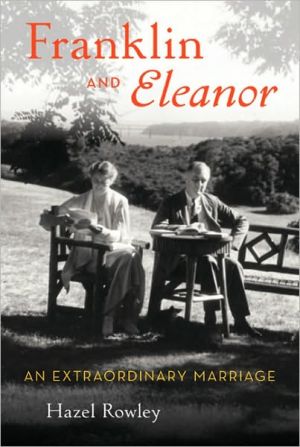American Fuehrer: George Lincoln Rockwell and the American Nazi Party
The founder of the American Nazi party and its leader until he was murdered in 1967, George Lincoln Rockwell was one of the most significant extremist strategists and ideologists of the postwar period. His influence has only increased since his death. A powerful catalyst and innovator, Rockwell broadened his constituency beyond the core Radical Right by articulating White Power politics in terms that were subsequently appropriated by the one-time klansman David Duke. He played a major role in...
Search in google:
The founder of the American Nazi party and its leader until he was murdered in 1967, George Lincoln Rockwell was one of the most significant extremist strategists and ideologists of the postwar period. His influence has only increased since his death. A powerful catalyst and innovator, Rockwell broadened his constituency beyond the core Radical Right by articulating White Power politics in terms that were subsequently appropriated by the one-time klansman David Duke. He played a major role in developing Holocaust revisionism, now an orthodoxy of the Far Right. He also helped politicize Christian Identity, America's most influential right-wing religious movement, and welded together an international organization of neo-Nazis. All of these extremist movements continue to thrive today. Frederick Simonelli's biography of this powerful and enigmatic figure draws on primary sources of extraordinary depth, including declassified FBI files and manuscripts and other materials held by Rockwell's family and associates. Salon - Katherine Whittemore Call me sick, but I had to laugh sometimes while I was reading American Fuehrer: George Lincoln Rockwell and the American Nazi Party. Laugh the way I would at, say, Charlie Chaplin as Adenoid Hynkel in his 1940 Hitler spoof, The Great Dictator, because you can't believe someone that depraved, that clownish, that peerlessly narcissistic can win over a single person, much less crowds. Rockwell (1918-1967) was pathetic and probably mentally ill, but he had charisma. This advertising man, freelance writer, navy flier, Brown University alumnus and son of a renowned vaudevillian -- Groucho Marx and Jack Benny came to Georgie's christening -- knew all about wild statements and PR ploys. To rile the Freedom Riders crusading for Civil Rights in Mississippi in the early '60s, for instance, Rockwell got racist musicians to perform at nearby "Hate-o-nannies." He liked to claim that "Jewish agents like Benny Goodman" foment "cultural anarchy" and that "any pansy can be a pink" but "it takes a MAN to be a Nazi." In the mid-'60s, trying to wrap his party in the shawl of Christian justification, he noted "the amazing similarity between the name of the birthplace of the great Prophet ... which is NAZareth" and his party's name. "Change just ONE letter and it becomes NAZIreth! Surely the Almighty is telling us something!" If you know of Rockwell, it's probably from his infamous 1966 Playboy interview with Alex Haley or from his Gordon Liddyesque college-circuit lectures, or maybe from his coining of the phrase "White Power" right after Stokely Carmichael came up with "Black Power." If you've never heard of him, it may be because in his heyday major Jewish organizations vigorously pursued a policy of "quarantine," as they called it, urging members and the press to ignore Rockwell's antics in order to dry up his lifeblood of publicity. Rockwell's strength didn't lie in the number of his adherents (a heartening fact, that). Author Frederick J. Simonelli, a professor of history at Mount St. Mary's College in Los Angeles, thinks the American Nazi party never boasted more than 200 members. Rockwell was perpetually broke; how many other party leaders do their own laundry? Indeed, he was assassinated outside a seedy Arlington, Va., Laundromat, not far from his old headquarters which had been seized by the IRS for nonpayment of taxes. Simonelli, an energetic writer and reporter, is to be commended for tracking down many of Rockwell's surviving associates. He's created a compelling narrative. One might wish for a bit more psychological probing, though various red flags do snap forth. Rockwell hated his also-beyond-narcissistic father, rebelled histrionically against authority from the get-go (in prep school, he burned a teacher in effigy) and read Mein Kampf a dozen times (it "was like finding part of me," he wrote) while serving at a naval base in Iceland. He drank too much, battled depression, was left by several wives, became estranged from his family and spun further and further out of control; you'll wince at the passages in which his goodhearted brother and William F. Buckley, whom Rockwell hounded, try to get him help. In the succinct summation from a 1967 volume that that Simonelli cites, Rockwell gave in to "the ageless impulse of men and women eaten by the disease of hatred to find a political expression or rationalization for their malady." Another nutbar, then. Why should we care? Because, Simonelli stresses, in a nation on which Timothy McVeigh and Dylan Klebold and Eric Harris inflict themselves, Rockwell types still cut a swath. Or, for a less directly violent legacy, there's David Duke, an early party disciple of Rockwell's. The white-supremacist Louisiana pol absorbed the homegrown Nazi's most lasting lesson: Ditch the Nazi uniform for the business suit, trade the swastika for an American eagle and you'll get somewhere.
AcknowledgmentsIntroduction11The Family52The Artist and the Warrior143The Coming Out224The ANP's Members, Followers, Funding335Agitating for Power446Quarantine: Leashing the Beast527The Scorned728The World Union of National Socialists819White Power9610Holocaust Denial10611Christian Identity11512Settling for Notoriety12313Betrayal and Death131Conclusion: Rockwell's Legacy of Hate141Notes147Bibliography187Index201
\ Katherine WhittemoreCall me sick, but I had to laugh sometimes while I was reading American Fuehrer: George Lincoln Rockwell and the American Nazi Party. Laugh the way I would at, say, Charlie Chaplin as Adenoid Hynkel in his 1940 Hitler spoof, The Great Dictator, because you can't believe someone that depraved, that clownish, that peerlessly narcissistic can win over a single person, much less crowds. Rockwell (1918-1967) was pathetic and probably mentally ill, but he had charisma. This advertising man, freelance writer, navy flier, Brown University alumnus and son of a renowned vaudevillian -- Groucho Marx and Jack Benny came to Georgie's christening -- knew all about wild statements and PR ploys.\ To rile the Freedom Riders crusading for Civil Rights in Mississippi in the early '60s, for instance, Rockwell got racist musicians to perform at nearby "Hate-o-nannies." He liked to claim that "Jewish agents like Benny Goodman" foment "cultural anarchy" and that "any pansy can be a pink" but "it takes a MAN to be a Nazi." In the mid-'60s, trying to wrap his party in the shawl of Christian justification, he noted "the amazing similarity between the name of the birthplace of the great Prophet ... which is NAZareth" and his party's name. "Change just ONE letter and it becomes NAZIreth! Surely the Almighty is telling us something!"\ If you know of Rockwell, it's probably from his infamous 1966 Playboy interview with Alex Haley or from his Gordon Liddyesque college-circuit lectures, or maybe from his coining of the phrase "White Power" right after Stokely Carmichael came up with "Black Power." If you've never heard of him, it may be because in his heyday major Jewish organizations vigorously pursued a policy of "quarantine," as they called it, urging members and the press to ignore Rockwell's antics in order to dry up his lifeblood of publicity.\ Rockwell's strength didn't lie in the number of his adherents (a heartening fact, that). Author Frederick J. Simonelli, a professor of history at Mount St. Mary's College in Los Angeles, thinks the American Nazi party never boasted more than 200 members. Rockwell was perpetually broke; how many other party leaders do their own laundry? Indeed, he was assassinated outside a seedy Arlington, Va., Laundromat, not far from his old headquarters which had been seized by the IRS for nonpayment of taxes.\ Simonelli, an energetic writer and reporter, is to be commended for tracking down many of Rockwell's surviving associates. He's created a compelling narrative. One might wish for a bit more psychological probing, though various red flags do snap forth. Rockwell hated his also-beyond-narcissistic father, rebelled histrionically against authority from the get-go (in prep school, he burned a teacher in effigy) and read Mein Kampf a dozen times (it "was like finding part of me," he wrote) while serving at a naval base in Iceland.\ He drank too much, battled depression, was left by several wives, became estranged from his family and spun further and further out of control; you'll wince at the passages in which his goodhearted brother and William F. Buckley, whom Rockwell hounded, try to get him help. In the succinct summation from a 1967 volume that that Simonelli cites, Rockwell gave in to "the ageless impulse of men and women eaten by the disease of hatred to find a political expression or rationalization for their malady."\ Another nutbar, then. Why should we care? Because, Simonelli stresses, in a nation on which Timothy McVeigh and Dylan Klebold and Eric Harris inflict themselves, Rockwell types still cut a swath. Or, for a less directly violent legacy, there's David Duke, an early party disciple of Rockwell's. The white-supremacist Louisiana pol absorbed the homegrown Nazi's most lasting lesson: Ditch the Nazi uniform for the business suit, trade the swastika for an American eagle and you'll get somewhere.\ — Salon\ \ \ \ \ \ Publishers Weekly - Publisher's Weekly\ His father was a popular vaudeville comedian and humor columnist. His mother was a graceful, delicate toe dancer. George Lincoln Rockwell achieved notoriety through an altogether different kind of showmanship, as the founder and leader of the American Nazi Party, who vowed to exterminate Jews, blacks and homosexuals. Although his neofascist crusade, at its height, attracted perhaps a few hundred hardcore followers, the Illinois-born demagogue was no mere powerless gadfly or eccentric crank, as Simonelli, who teaches at Mount St. Mary's College in Los Angeles, demonstrates in his chilling biography. Rockwell's Holocaust denial bequeathed a propaganda tool to racist right-wing extremists who seek to mute the moral lessons of Hitler's crimes. His links to the Christian Identity movement provided a camouflage for a later generation of white supremacists seeking theological justification for their hatreds. Moreover, in the months before he was assassinated in 1967 (possibly as the result of a conspiracy within his own party, as Simonelli reveals), Rockwell attempted to "sanitize" his anti-Semitism and racism for mass consumption. He thereby set an example, according to Simonelli, for David Duke, a Rockwell disciple. Rockwell's psyche remains elusive: the beatings he suffered from the aunt who raised him and the coldness of his domineering father only begin to account for his warped beliefs. Even so, this excellent biography sounds a timely warning against complacency toward contemporary extremists. Photos. (July) Copyright 1999 Cahners Business Information.\ \








